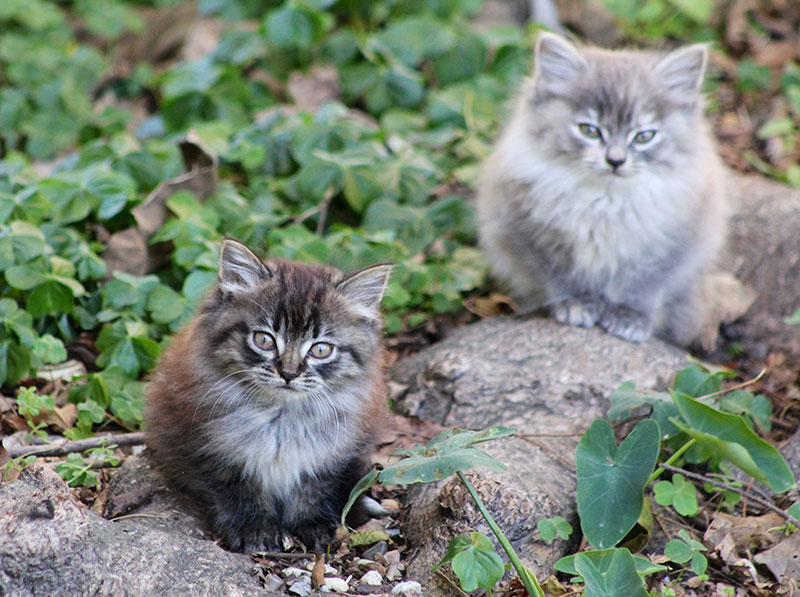BETHESDA, MD – Spring marks the beginning of kitten season, when babies are born to community cats who have not yet been trapped, neutered, and returned. Taking home a kitten found outdoors is not necessarily a good idea. Alley Cat Allies offers the following springtime kitten-protection tips:
1. Leave kittens with mom. Like all babies, kittens are best left with their mothers who instinctively know how to help their offspring grow up to be strong and healthy cats. Neonatal kittens, 4 weeks old or younger, need constant care and still depend on mom for 100 percent of their food. Kittens 5 to 8 weeks old can begin to eat wet food but are still being weaned. If you know the mother is present, it is best to leave kittens with her. To determine whether the mother is caring for the kittens, wait and observe for two-to- four hours to see if the mother returns. She could just be out looking for food. If she doesn’t return, the kittens could be abandoned. A young kitten living outdoors who does not have a mother present should be taken in and fostered. To determine the age of a kitten, use Alley Cat Allies’ Kitten Progression Chart at www.alleycat.org/KittenProgression.
2. Don’t bring neonatal kittens to an animal shelter. Most shelters are not equipped or trained to provide the necessary round-the-clock care for neonatal kittens. If a kitten can’t eat on his own, he will likely be killed at the shelter. Realistically, it’s never a good idea to take a cat to a shelter, no matter the age or level of socialization. More than 70 percent of cats who enter shelters are killed. That number rises to virtually 100 percent for feral cats. Killing is never the answer—it is inhumane and it fails to stabilize or reduce outdoor cat populations.
3. Volunteer as a kitten foster parent for a local rescue group. There are kitten foster parent programs associated with rescue groups across the country. Though it is an investment of time and requires training, volunteering to foster young kittens is lifesaving and rewarding.
4. Support and practice Trap-Neuter-Return (TNR). TNR is the only effective and humane way of decreasing feral cat populations. In a TNR program, community cats are humanely trapped and brought to a veterinarian to be spayed or neutered, vaccinated, and eartipped (the universal symbol that a cat has been neutered and vaccinated) before being returned to their outdoor homes. Learn more about TNR at www.alleycat.org/TNR.
Spaying and neutering community cats prevents new litters, drastically reducing the impact of kitten season. Cats as young as 4 months can have litters, so it is important to spay and neuter kittens as soon as they are ready. A good rule of thumb is the 2 Pound Spay/Neuter Rule—kittens can be safely spayed or neutered at 2 months of age or as soon as they weigh 2 pounds. Learn more about pediatric spay and neuter at www.alleycat.org/spayneuter.
5. Advocate for policies and programs that protect cats. Contact your shelter and local officials and tell them you support lifesaving policies for cats, including spay/neuter funding and spay/neuter before adoption. Write letters and call in support of community outreach and education programs that spread awareness about community cats and TNR– you can make a big difference.
Check out http://wwww.alleycat.org/Kittens for a comprehensive guide to caring for kittens.
###
About Alley Cat Allies
Alley Cat Allies is the only national advocacy organization dedicated to the protection and humane treatment of cats. Founded in 1990 and celebrating 25 years of saving cats, today Alley Cat Allies has over half a million supporters and helps tens of thousands of individuals, communities, and organizations save and improve the lives of millions of cats and kittens nationwide. Its website is www.alleycat.org.
